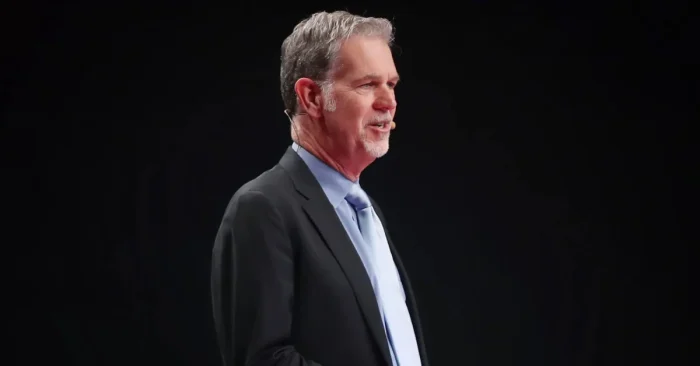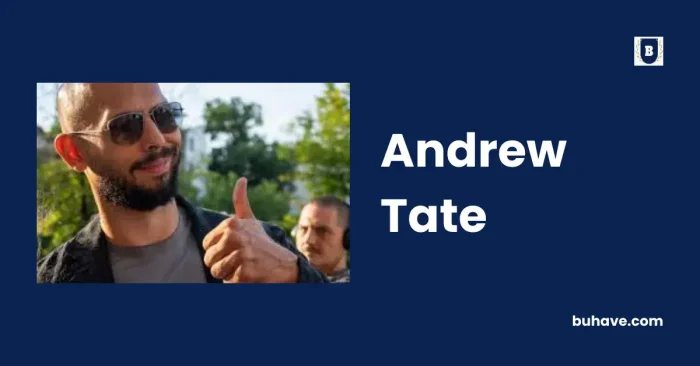Reed Hastings – Biography
Early Life and Education
Reed Hastings was born on October 8, 1960, in Boston, Massachusetts. Raised in a well-educated family, his father was an attorney for the Department of Health, Education, and Welfare in the Nixon administration. Hastings attended Buckingham Browne & Nichols School in Cambridge before enrolling at Bowdoin College in Maine, where he earned a bachelor’s degree in mathematics in 1983. After college, he served in the Peace Corps, teaching math in Swaziland for two years, which he credits with shaping his problem-solving mindset. Following this experience, he earned a master’s degree in computer science from Stanford University, where his passion for technology and innovation deepened.
Early Career and Entrepreneurial Path
After completing his studies at Stanford, Hastings began his career in the tech industry. In 1991, he founded his first company, Pure Software, which created tools for troubleshooting software. Although the company faced initial struggles, Hastings’ leadership led to its rapid growth and eventual public offering. In 1997, Pure Software merged with Atria Software and was later acquired by Rational Software. Hastings later reflected on the experience, noting that while the company succeeded, he felt unprepared for managing rapid expansion. This realization influenced how he would structure his future companies, prioritizing innovation and employee freedom.
Founding of Netflix
In 1997, Reed Hastings co-founded Netflix with software executive Marc Randolph. The idea reportedly came after Hastings was charged a late fee for a rented movie, which sparked the vision for a more customer-friendly rental model. Originally launched as a DVD-by-mail service, Netflix revolutionized home entertainment with its subscription-based model. Under Hastings’ leadership, Netflix introduced a personalized recommendation algorithm and eliminated late fees, setting it apart from traditional rental chains. As technology evolved, Hastings foresaw the potential of digital streaming. In 2007, Netflix launched its streaming platform, dramatically altering media consumption and setting the stage for the next phase of entertainment.
Streaming and Global Expansion
Hastings guided Netflix through a transformative decade as it shifted from DVDs to digital streaming and original content production. With titles like *House of Cards* and *Stranger Things*, Netflix quickly became a major content creator. Hastings emphasized data-driven decision-making and risk-taking in greenlighting diverse and bold projects. Under his vision, Netflix expanded globally, becoming available in over 190 countries and amassing a subscriber base in the hundreds of millions. He also championed binge-watching and direct-to-consumer streaming, effectively disrupting the television industry. Hastings’ approach helped make Netflix a dominant force in global entertainment.
Leadership Style and Innovation
Reed Hastings is known for his distinct leadership philosophy, emphasizing freedom and responsibility. At Netflix, he fostered a culture of transparency and innovation. He implemented an unconventional HR approach, including unlimited vacation time and encouraging honest feedback. His management style is chronicled in the book *No Rules Rules*, co-authored with Erin Meyer, which outlines how Netflix thrives on adaptability and trust. Hastings believes that a strong culture of accountability and creative freedom enables employees to take initiative and drive innovation. His ideas have influenced Silicon Valley and corporate leadership models globally.
Personal Life and Philanthropy
Reed Hastings is married to Patricia Ann Quillin, and the couple has two children. They reside in California and are actively involved in philanthropy, particularly in education reform. Hastings has donated millions to support charter schools, education technology, and equitable learning initiatives. He served on the California State Board of Education and advocates for personalized learning and data-driven education systems. He also founded the Hastings Fund, which supports education-focused non-profits. His commitment to education stems from his own academic background and his belief in its power to transform lives and societies.
Recent Years and Legacy
In 2023, Reed Hastings stepped down as co-CEO of Netflix, transitioning to the role of executive chairman. His successor, Ted Sarandos, had already been sharing leadership duties. Hastings’ transition marked a new phase for the company, which continues to evolve with new content strategies and technological innovations. Hastings leaves behind a remarkable legacy as a disruptor of the entertainment industry and a visionary in digital transformation. His leadership turned Netflix from a DVD rental startup into a global streaming powerhouse that redefined how audiences watch and engage with content.
Conclusion
Reed Hastings’ journey from a math teacher in Swaziland to the helm of one of the world’s most influential media companies exemplifies the power of vision, adaptability, and innovation. Through Netflix, he not only revolutionized the way people consume entertainment but also reshaped corporate culture with bold and unconventional ideas. His commitment to both technology and education continues to impact industries and individuals around the globe. As Netflix forges ahead, Hastings’ legacy as a pioneer and thought leader remains firmly established in the digital age.
Frequently Asked Questions
What is Reed Hastings known for?
Reed Hastings is best known as the co-founder and former CEO of Netflix, a company that transformed the entertainment industry.
When did Reed Hastings start Netflix?
He co-founded Netflix in 1997 with Marc Randolph, originally as a DVD rental-by-mail service.
What is Reed Hastings’ leadership style?
Hastings is known for his emphasis on freedom, responsibility, and innovation in the workplace.
Has Reed Hastings written any books?
Yes, he co-authored *No Rules Rules*, which details Netflix’s unique corporate culture and leadership approach.
Is Reed Hastings involved in philanthropy?
Yes, he is actively involved in education reform and has donated significantly to educational initiatives and charter schools.






